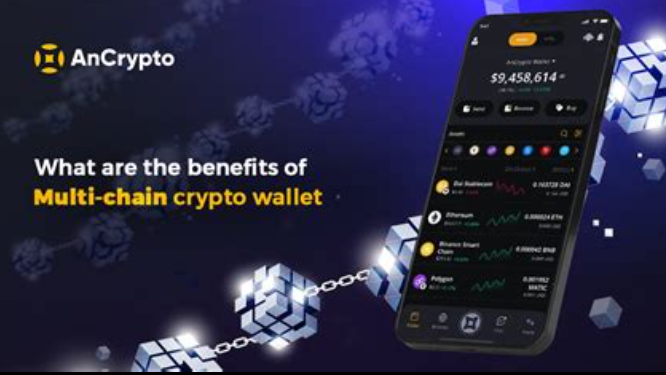In the rapidly evolving world of cryptocurrency, managing assets across multiple blockchains has become increasingly complex. Virtual multi-chain wallets are emerging as a solution to streamline this process, offering users a unified platform to manage diverse digital assets. These wallets are designed to support various blockchains, enabling seamless transactions and enhanced user experience.
Understanding Virtual Multi-Chain Wallets
A virtual multi-chain wallet is a digital wallet that allows users to store, send, and receive cryptocurrencies from multiple blockchain networks within a single interface. Unlike traditional wallets that are limited to a single blockchain, these wallets provide interoperability between different networks, facilitating easier asset management and cross-chain transactions.
For instance, platforms like MetaMask and Trust Wallet have integrated multi-chain support, enabling users to interact with Ethereum, Binance Smart Chain, Polygon, and other networks without the need for multiple wallet applications .
The Need for Multi-Chain Solutions
As the cryptocurrency ecosystem expands, users often find themselves managing assets across various blockchains. This fragmentation can lead to increased complexity and potential security risks. Virtual multi-chain wallets address these challenges by consolidating assets from different networks into a single platform, simplifying management and reducing the risk of errors.
Moreover, these wallets support cross-chain transactions, allowing users to transfer assets between different blockchains seamlessly. This functionality is particularly beneficial in decentralized finance (DeFi) applications, where assets are often spread across multiple networks .

Enhancing User Experience and Security
One of the primary advantages of virtual multi-chain wallets is the improved user experience. By providing a unified interface, these wallets eliminate the need for users to switch between different applications, streamlining the process of managing digital assets.
Security is another critical aspect. Reputable multi-chain wallets implement robust security measures, including two-factor authentication and encryption, to protect user assets. Additionally, some wallets offer features like hardware wallet integration and decentralized identity solutions to further enhance security .
The Future of Multi-Chain Wallets
Looking ahead, the development of virtual multi-chain wallets is expected to continue advancing. Innovations such as chain abstraction and wallet-as-a-service are being explored to further simplify user interactions and improve the scalability of these platforms .
As the demand for interoperability and user-friendly interfaces grows, virtual multi-chain wallets will play a pivotal role in the adoption and integration of blockchain technologies across various sectors.
In conclusion, virtual multi-chain wallets represent a significant step forward in the evolution of cryptocurrency management. By offering a unified platform for managing diverse digital assets, these wallets enhance user experience, improve security, and facilitate seamless cross-chain transactions. As the cryptocurrency landscape continues to evolve, the adoption of virtual multi-chain wallets will likely become increasingly prevalent, shaping the future of digital asset management.
Author’s Bio:
Alex Morgan is a seasoned financial technology expert with over a decade of experience in blockchain and cryptocurrency innovations. With a background in software engineering and a passion for decentralized finance, Alex provides insights into the evolving landscape of digital asset management. Through extensive research and analysis, Alex aims to educate and inform audiences about the transformative potential of blockchain technologies in the financial sector.



























